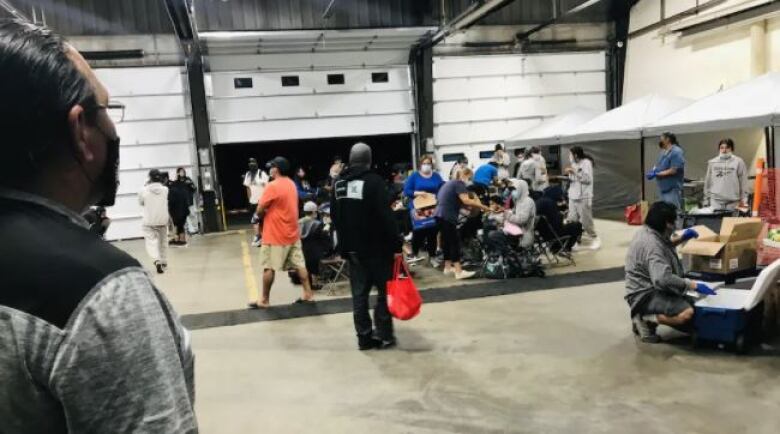Sudbury, partners working to plan 'home away from home' for future First Nation evacuees
Stronger Together Framework being used to ensure evacuees are better supported during stay in Sudbury

With the start of both the flooding and forest fire season coming up for remote First Nations in northern Ontario, the City of Greater Sudbury and its partners are getting prepared for when evacuees arrive.
AfterEmergency Management Ontario contacts the city to host evacuees, the partners only have 24 to 48 hours to get ready.
That means a lot of organizing happens well in advance.
The city and its partners held a planning session Wednesday to tweak their hosting plan.
'Flooding andwildfires are big reality'
They invited Tara Sloss to speak to the representatives.
She's from Peawanuck, near the Hudson Bay coast, and knows what it's like to have to evacuate her home with just a moment's notice.
"Flooding and wildfires are a big reality," Sloss said.
It was during her evacuation stay in Timminsa few years ago that she first noticed gaps in the system, including language barriers, cultural differences and no Indigenous leads on site.
That's how the Stronger Together Framework was created. It's a made-in-Timmins approach to First Nation evacuations.
"It's an evergreen document really based on our First Nation communities and just providing a respectful holistic culturally sound evacuation host site," Sloss said.
During the planning session, she encouraged the representatives to "ask those important questions" when evacuees come in.
"And take the time to learn about the people you're inviting into your community," she said.
"It's not about what you can bring to the table, it's about how you can support those communities."
Sloss said evacuees areself-sufficient and just need a bit of support while in the host community.
'Home away from home'
"Everybody has a role to play," said Sonya Clouthier, regional emergency management co-ordinator for Mamaweswen North Shore Tribal Council. It represents seven First Nation communities between Sudbury and Sault Ste Marie, and is one of the partners when Sudbury hosts evacuees.

"I can't do all of it by myself, but together we're sure that we create the wrap-around services that northern communities need."
Clouthier said the session was planned before the start of April, when flood season starts for the remote parts of northern Ontario.
"We are finishing up the planning document so that way we can be prepared to be a home away from home for our northern communities," she said.
"The North and the South are very very different, but there's also that cross-understanding," saidJake Elliot, emergency management co-ordinator for Atikameksheng Anishnawbek, west of Sudbury.
"Having that cultural platform that we can kind of build off of and just asking those questions."
Elliot saidFirst Nation communities near Sudbury want to be involved when the city hosts evacuees from northern First Nations, as a way tohelp provide cultural support.
"We're not here to tell you what you need to do, we're here to ask and offer our services to that extent."
Sudbury is prepared to host about 75 to 100 evacuees. It's yet to be determined when that will happen.












_(720p).jpg)


 OFFICIAL HD MUSIC VIDEO.jpg)
.jpg)



























































































